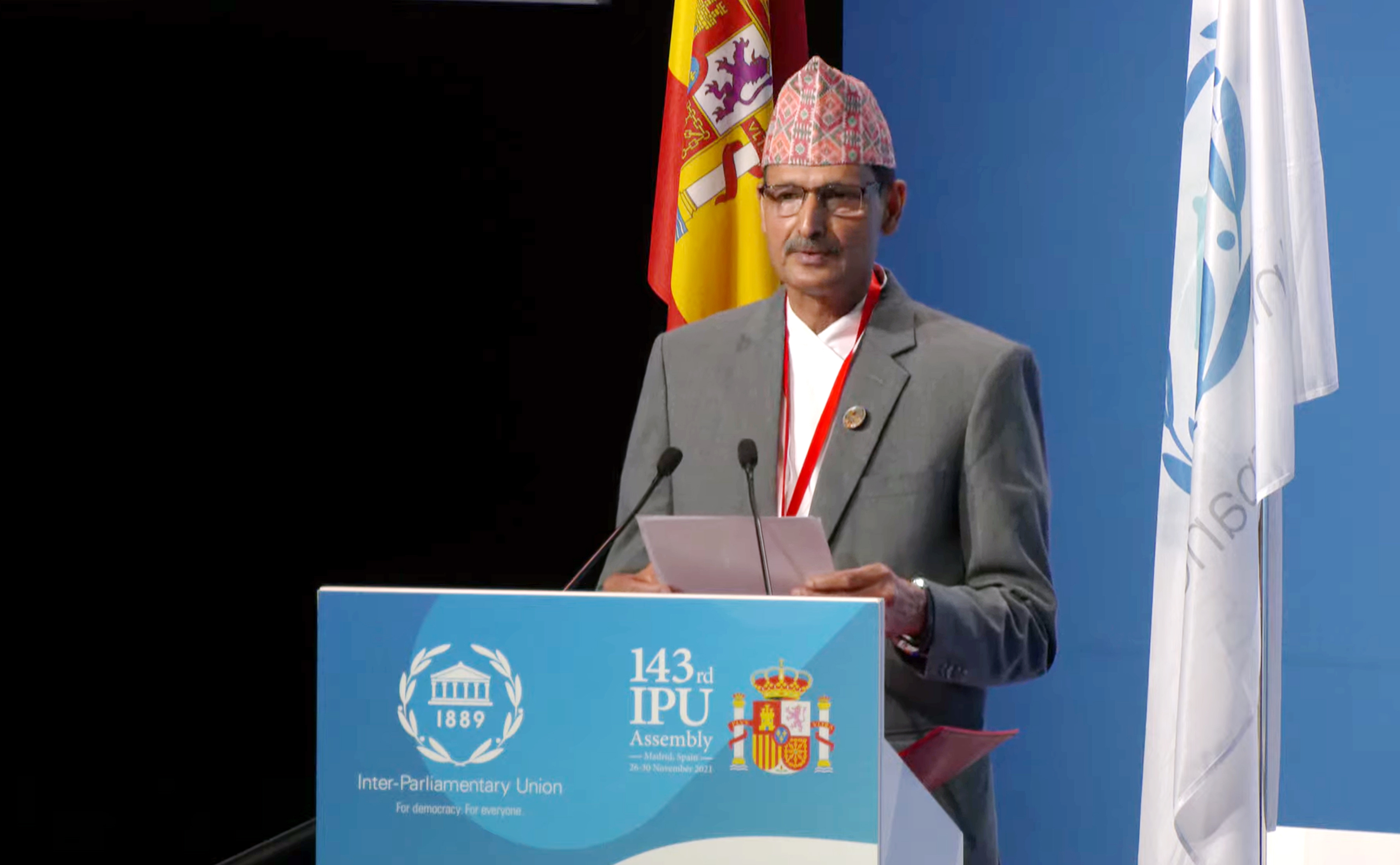
In his address to the 143rd Inter-Parliamentary Union (IPU) Assembly being held in Madrid of Spain, Speaker of House of Representatives Agni Prasad Sapkota has said that the parliament is the living embodiment of democracy and it is where people can change their rulers in a peaceful manner.
“It is where people’s representatives earn trust and respect by ensuring justice and fairness to the weaker section, in absence of which people question whether this democratic system even works at all.”
These were his remarks on the theme “Contemporary challenges to democracy: Overcoming division and building community”.
He went on to say that heated exchanges, false data, misleading statistics, anger and frustrations that spread fast and wide had weakened people’s trust towards political institutions.
“Nepal’s initiatives towards strengthening democratic institutions by addressing the challenges faced by marginalized communities has led to the formation of an inclusive Constituent Assembly. The Constituent Assembly promulgated a rights-based Constitution in 2015 that embodies the fundamentals of participatory and inclusive democracy.”
He added that Nepal’s new constitution had helped in building of a cohesive and inclusive society. “Women now make up one third in the Federal Parliament and about 41 percent at the provincial and local levels.”
Speaker Sapkota is alleged to have been involved in the April 2005 abduction, torture, disappearance, killing and illegal burial of Arjun Bahadur Lama, a civic leader from Kavre district.
During conflict years, Sapkota was a central committee member and leader of the underground Communist Party of Nepal-Maoist (CPN-M) in Sindhupalchok district. He was elected as Speaker in January 2020 amidst protests against his candidacy.
The court hearings on petitions against him have been deferred for more than 25 times.
Sapkota’s remarks come at a time when human rights organizations in Nepal have slammed his invitation to the IPU Assembly and written an open letter to the President of IPU Duarte Pacheco, Spanish Foreign Minister José Manuel Albares Bueno and Ambassador to India and Nepal José María Ridao Domínguez against the Speaker’s Madrid visit.
Sapkota is leading a 10-member team, comprising parliamentarians and officials from the parliament secretariat, in Madrid.
“We ask the Government of Spain to direct its immigration authorities not only to refuse Mr Sapkota entry into the country but also to open an investigation under the principles of Universal Jurisdiction, given the continuing investigation in Nepal in relation to international crimes committed during Nepal’s conflict,’ wrote Charan Prasai, coordinator of the Accountability Watch Committee (AWC), a network of human rights groups and victims of the conflict of Nepal.
“Despite the order of the Supreme Court requiring impartial and prompt investigation and an arrest warrant pending against him, investigations have not proceeded for more than a decade nor has he been arrested. Meanwhile, even as Mr Sapkota’s political career has progressed, as far as the Nepal Police administration is concerned, he still cannot be located,” the letter states.






